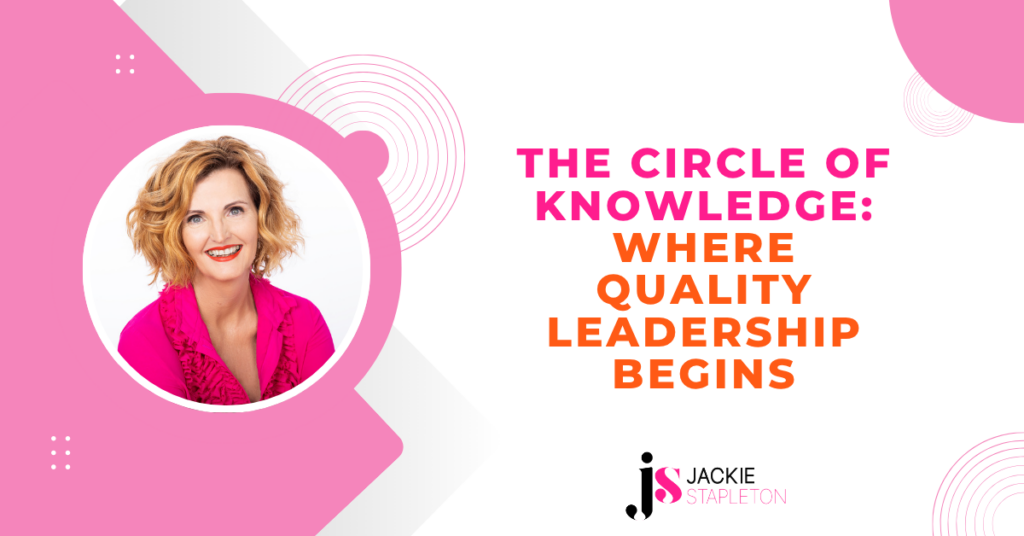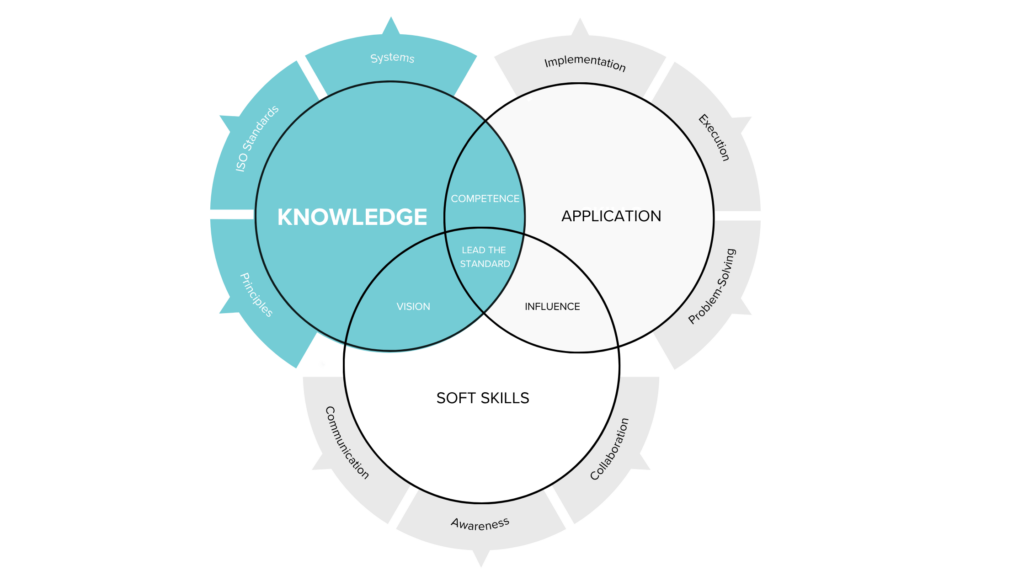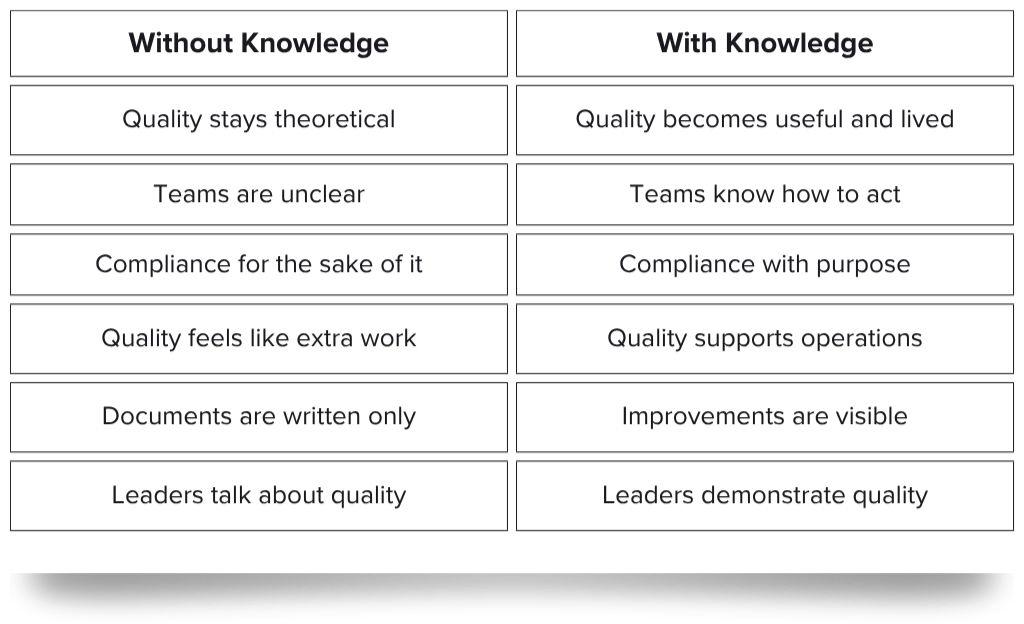November 12th, 2025

—
You’ve probably heard the saying, ‘knowledge is power’. And that’s absolutely true when it comes to quality leadership. Except in quality leadership, it’s not just power. Knowledge is your compass, your confidence and your credibility. It’s your foundation and your base.
But here’s the truth no one tells you when you step into a quality role – most of us are thrown in before we’re really ready.
I was offered my first quality manager role before I even understood the standard. I got the job based on my experience and transferable skills – I was already great at managing people, solving problems and turning messy systems around. But I quickly found myself out of my depth. I didn’t understand the language. I was bluffing through the clauses and often found myself just nodding along in meetings, hoping no one else would ask a follow-up question. It didn’t take long to realise that without a clear grasp on the standard, I was building on shaky ground. I needed more than just experience – I needed a foundation.
And I’m not alone. Most quality professionals are thrown in at the deep end. They might be handed a manual (or five), and told to make it work. But without understanding how quality is structured, what the principles mean, or why the requirements exist, it’s like building a house with no foundation. And we need a foundation.
So let’s fix that.

—
Knowledge is the foundation

Quality leadership starts with understanding. That’s our real starting line, because when you get the fundamentals right, everything else clicks into place. You stop chasing audits and start making decisions. You stop relying on templates and start creating systems that work for your business.
You can’t do advanced maths without knowing how to add. Quality is no different – the basics come first and the basics is knowing the standard.
Without knowledge vs with knowledge
Let’s look at the shift:

This shift isn’t about becoming a quality encyclopedia. You don’t have to know everything. But you do have to know enough to guide, influence and make decisions.
Quality leadership isn’t about reciting clauses or perfect documentation – it’s about influence. It’s the ability to remove friction, reduce overwhelm and make quality systems feel like a natural part of how work gets done. Real quality leaders don’t create confusion or resistance – they build trust, clarity and momentum.
Yes, knowledge is essential. It’s the foundation we stand on. But true leadership happens when that knowledge is applied with confidence, clarity and care.
It shows up in the way you streamline processes, support teams and shape a culture where quality isn’t forced – it’s followed. Like the Pied Piper, people come along willingly because they see the value, they feel supported and they trust the direction. That’s what quality leadership really means: influence, without friction.
How to build quality knowledge that matters
Building quality knowledge that meets our goals comes down to conquering three main Essentials:
1. Principles – the why behind the standard
2. ISO standards – the structure that brings it all together
3. Systems – the real world engine that makes quality live in your organisation
When you understand why quality exists, how it’s structured, where it fits into your day-to-day operations and how it works together holistically to influence real outcomes, that’s where the magic happens. You move from conformance cop to strategic contributor. From technician to leader. You stop pushing clauses and start building results.
This kind of knowledge isn’t about passing tests or collecting qualifications (though those are important!). This kind of knowledge is about being the person in the room who actually gets it – who sees the bigger picture, knows the purpose and knows how to bring the entire team together to get it done.
Because when you know why you’re doing what you’re doing, you bring more clarity, confidence and commitment to the principles, their implementation and the benefits they can bring to your entire organisation. And that’s being a quality leader.
Your Next Knowledge Steps
1. Reflect on your current knowledge – How confident are you in explaining the purpose behind quality principles?
2. Review your understanding of ISO standards – Can you clearly describe how the clauses connect to your organisation’s goals?
3. Assess your systems knowledge – Do you know how your organisation’s processes bring the standard to life day to day?
4. Identify your strongest area – Which of the three (Principles, ISO Standards, Systems) do you lead with confidence right now?
5. Choose one area to strengthen – Focus on building clarity there before moving into practical application.
You’ve just read a small part of the book! The full version is coming soon—pre-order now and be among the first to read it when it’s released.
View comments
+ Leave a comment